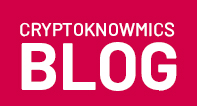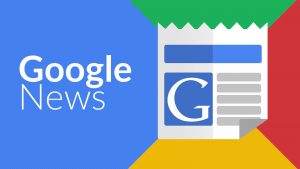If you haven’t heard of blockchain, you may have heard of cryptocurrencies like Bitcoin, Ethereum or Ripple. These digital currencies use blockchain technology which is a distributed ledger technology that uses ‘blocks’ (or records) which are linked together and secured. Once data is stored in a blockchain it cannot be changed. This negates the need to trust suppliers, companies, or people – instead all the user has to do is look at the blockchain.
Think of it a bit like this: if someone says they will send you money, rather than trusting that they will, you can simply open the ledger and look to see if they sent it. Or, you can verify that the eggs you are buying really are free range, or that the vegetables in your basket are really organic. It’s a way of tracing exactly where things come from and the uses are endless.
Blockchains are mostly used in digital currencies or assets, wherein the more recorded transactions and more copies of the blockchain, the more secure the network. This is because if a ledger is returned and has been tampered with, it won’t match the other copies and will be rejected.
So how could this effect the world of learning and development?
Accreditation
E-Learning organisations can be accredited, and this accreditation can be traced by blockchain. Many companies, like Sony Education & IBM and Accredible are exploring the possibilities of this. A verified awarding body on blockchain allows third parties like recruiters to verify the integrity of students, awarding institutions or previous employees. This kind of accreditation can be applied to all professional development courses and can be shared voluntarily by the badge or certification holders.
Recruiters can look at a job applicants degree qualifications and references, as well as proof of employment with previous employees listed on their resumes and check the validity of all of these things.
Education Platforms
Education platforms can actually be built on blockchain. One such system is education-ecosystem, a decentralised educational platform built on top of Ethereum’s network (the cryptocurrency). The currency is used to incentivise content creators, allowing learners to pay for subscriptions using tokens. The more views content receives, the greater number of tokens are awarded to them. Token holders can also use the tokens to have a say on the design of the platform, on new features or topics they want to see – so the tokens are being used for governance and feedback purposes.
Performance
Blockchain can incentivise employees to perform better – because their performance records can be updated by multiple entities and professionals, rather than kept in the filing cabinet of one office! That means companies can use blockchain to ensure employees keep up to date with professional development, as these records will be with them for their entire career.
Companies might also begin to use blockchain to offer financial incentives for employees who keep developing themselves and their resumes in their spare time.
Meanwhile, blockchain can be used by employees to share sensitive healthcare and income-related data with their employees, without the risk of it being mis-used or lost.
Smart Contracts
Finally, blockchain can be used in ‘smart contracts.’ These are contracts wherein after certain conditions are met, a computer protocol digitally facilitates or verifies the negotiation or performance of a contract. Blockchain is used to mark consent or lack of consent from participating parties. These smart contracts enable credible transactions amongst businesses and institutions to occur without third parties being involved, increasing trust, security, and longevity – these contracts are trackable and irreversible.
These smart controls are done by computer protocols and are designed to provide greater security than traditional contract laws, in addition to reducing transaction costs.
Blockchain has many possible uses in learning and development – there is no blueprint for how to use blockchain in these areas, so the possibilities are endless! It can be used to accredit individuals and institutions, increasing trust between the employed and employees, and between students and institutions. Blockchain records will also increase performance due to increasing accessibility to resumes and employment records, enables smart contracts, and can even be used to build educational platforms. Time will tell where blockchain development will take us!
Molly Crockett writes for Academized. As a techwriter, she shares business and tech news and stories on her experience with her audience.


